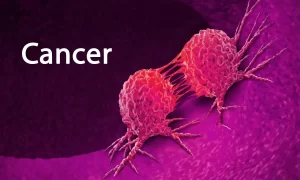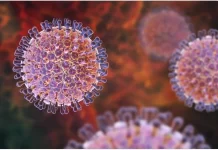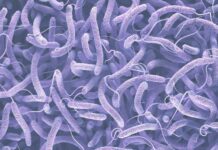Cancer:
Cancer is a complex collection of diseases characterized by abnormal cells in the body growing and spreading out of control. It can affect a wide range of tissues and organs and has a wide range of causes, symptoms, diagnostic techniques and therapeutic options. Here’s a general summary:
Skin Cancer- Causes, Symptoms, Diagnosis And Treatment

Causes of Cancer:
- Genetic factors: Certain gene mutations can increase the risk of developing cancer. These mutations can be inherited or acquired over time.
- Environmental factors: Exposure to carcinogens such as tobacco smoke, ultraviolet (UV) radiation, certain chemicals, asbestos, and pollutants can increase the risk of cancer.
- Lifestyle choices: Factors like tobacco and alcohol use, poor diet, obesity, lack of physical activity, and exposure to certain infections (e.g., HPV, hepatitis B and C) can contribute to cancer development.
Symptoms of Cancer:
The symptoms can vary depending on the type and stage of cancer, but some common signs include:
- Persistent fatigue
- Unintended weight loss
- Pain in specific areas
- Changes in the skin (e.g., darkened or yellowed skin)
- Changes in bowel or bladder habits
- Persistent coughing or hoarseness
- Difficulty swallowing
- Unusual bleeding or discharge
Diagnosis of Cancer:
- Medical history and physical examination: A healthcare provider will ask about symptoms, risk factors, and perform a physical examination.
- Imaging tests: Techniques like X-rays, CT scans, MRI scans, ultrasounds, and PET scans can provide detailed images of the body to identify tumors or abnormal growths.
- Laboratory tests: Blood tests, urine tests, and other lab tests can help detect specific biomarkers or substances that indicate the presence of cancer.
- Biopsy: A tissue sample is taken from the suspicious area and examined under a microscope to confirm the presence of cancer cells and determine the type.
Treatment of Cancer:
- Surgery: Surgical procedures used to remove tumours or malignant tissues.
2. Using high-energy rays to either kill or shrink cancer cells is known as radiation treatment.
3. Chemotherapy: The administration of medications to kill cancer cells or slow their growth.
4. Immunotherapy: Medical procedures that strengthen the immune system’s capacity to spot and eliminate cancer cells.
5. Drugs developed to target particular defects in cancer cells constitute targeted therapy.
6. Using hormones to inhibit or reduce hormones that encourage tumour growth, hormone therapy treats hormone-sensitive malignancies.
7. For the body to recover from aggressive cancer therapies, damaged bone marrow is replaced with healthy stem cells through a stem cell transplant.
The type and stage of the cancer, the patient’s general health, and their preferences are all taken into consideration when creating a personalised cancer treatment plan. For individualised information and advice about cancer causes, symptoms, diagnosis, and treatment, it is preferable to speak with healthcare specialists.
Lung cancer-Causes, Symptoms, Diagnosis and Treatment


































